Top 10 biggest rats in the world
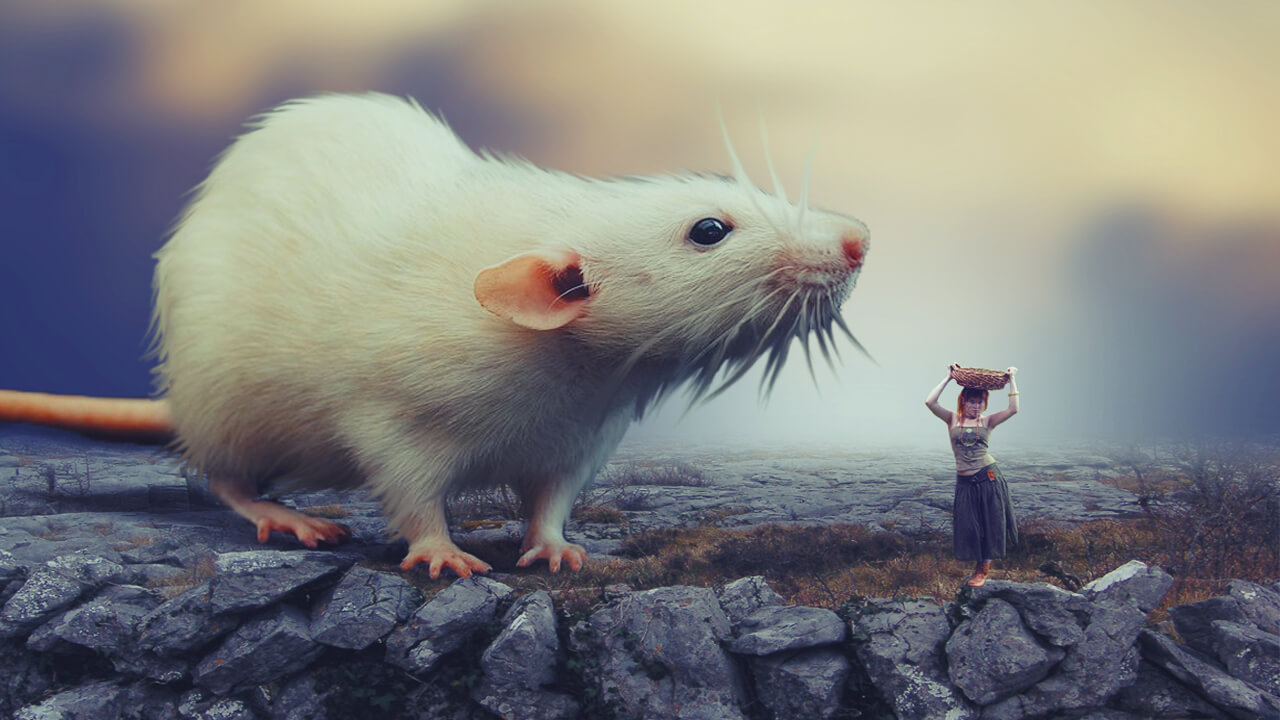
Rats are one of the largest rodent species on our planet. Most species do not exceed the body length of more than 15-20 cm. But there are also such rodents that can reach a rather impressive length in length. Some of them are distributed all over the world, others are on the verge of extinction (Kangaroo rats), and still, others have been relatively recently discovered by researchers.
This ranking includes the biggest rats in the world
1. Coypu | 1 meter
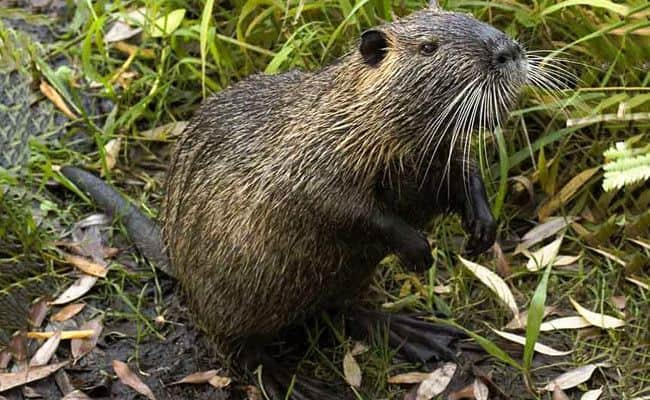
Coypus are one of the largest rodents known to science. They live on the island of Papua (New Guinea). The body length of giants can reach 1 meter, the tail - 30 cm. Externally, a large rodent resembles an ordinary pike, the difference is only in size. Papuan rats live in the mountains, in the mouth of extinct volcanoes. Thanks to their thick fur, animals can survive even in the harshest climates.
2. Cane Rat | 61 centimeters
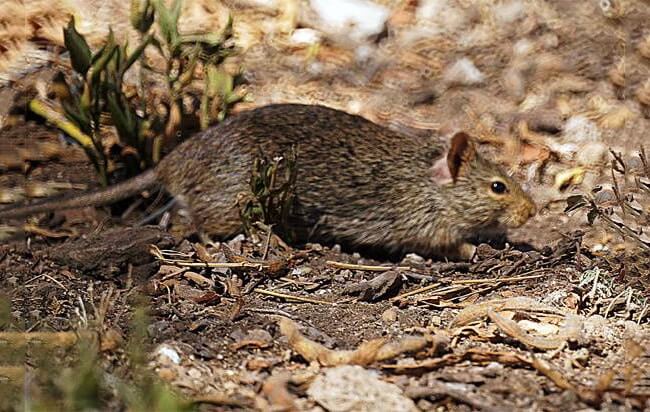
Cane rats are among the largest in the world. The animal belongs to the genus of African rodents. The body length of the Cane rat can be 61 centimeters, and the tail - 26 cm. Massive rodents weighing up to 9 kilograms are outwardly similar to nutria. The strong, short limbs have thick and well-developed claws. The head of the animal is rather large, with small eyes and rounded ears.
The coat of Cane rats is bristly and stiff, growing in bunches. The rodent chooses its habitat in wetlands near reed thickets. Animals build burrows in coastal vegetation, where they are located almost throughout the day. They are excellent swimmers who take refuge in bodies of water in case of danger. The main delicacies of this type of rat are cereals, sugar cane, pineapple, cassava. Often the inhabitants of African hunt.
3. Rufous rat-kangaroo | 55 centimeters
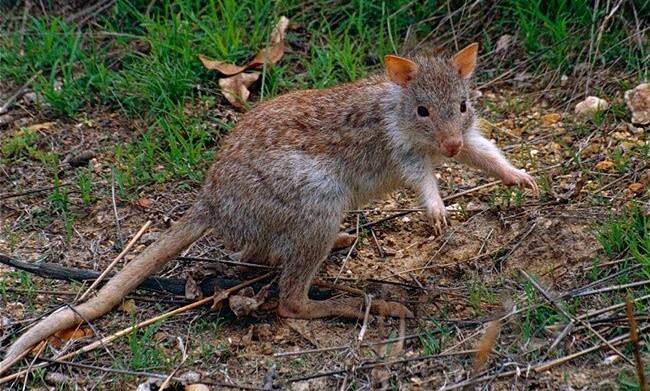
The Rufous rat-kangaroo belongs to the family of marsupial mammals. The length of the animal's body can reach 55 centimeters, and the length of the tail is 40 cm. The rodent resembles a kangaroo and its hind legs are larger and much longer than the front ones. It moves in leaps, but it can also move on all four legs. This species has 34 teeth, canines are very well developed.
The Rufous rat-kangaroo has a well-developed brood sac, where the development of the baby's embryo takes place. Animals live in grass nests, which they build themselves, or in rabbit holes. They feed on vegetation, mushrooms, and root crops. They are active at night. The Rufous rat-kangaroo species is rare, in particular widespread in Australia.
4. Bamboo Rat | 48 centimeters
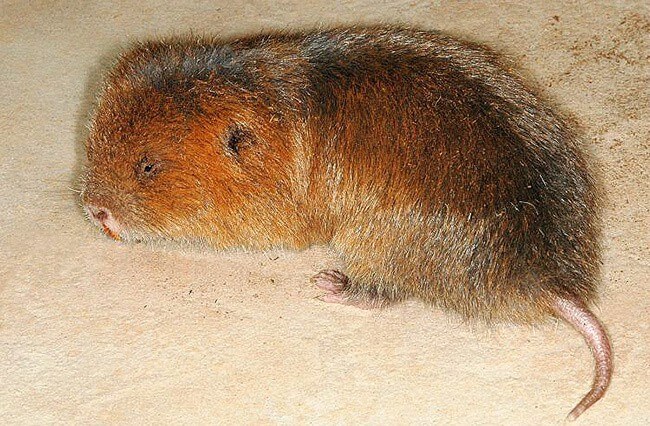
Bamboo rats are burrowing rodents and are the largest in the mole rat family. Bamboo rats can grow up to 48 centimeters in body and have a tail length of 15 cm. They lead, in particular, an underground lifestyle. The animals have small eyes and small ears. They have very large teeth and strong claws, which they need to dig holes. Rodents choose bamboo thickets as their habitat. Their main food is bamboo roots, stems, seeds, and other plant fruits. This type is usually common in Asian countries like China, Thailand, etc.
5. Gilbert's potoroo | 41 centimeters
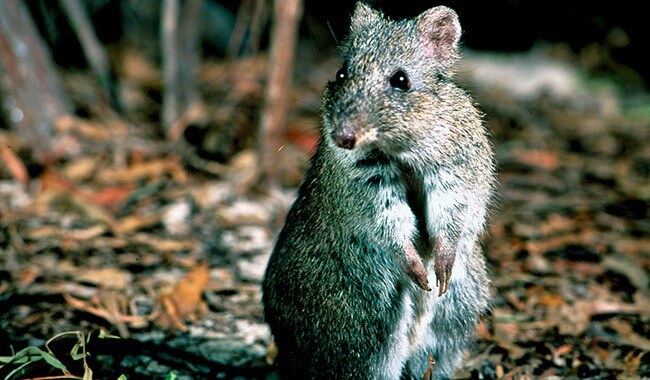
Gilbert's potoroo belongs to the genus of marsupials of the Kangaroo rat family. This is a rather large rodent, its body length can reach 41 centimeters, and its tail can reach 32 cm. The hind legs are more developed and longer than the front ones. It moves by leaps, on its hind legs alternately, like a jerboa.
Like all marsupials, the female has a well-developed hatching sac, where the cub is located, after birth within 4 months. The main habitat for Gilbert's potoroo is thickets of bushes, undergrowth, or even steppe. As a rule, the animals are nocturnal. During the day, they prefer to hide in the constructed burrows. They feed on potato plants, mushrooms, and insects.
6. Gray big rat | 40 centimeters
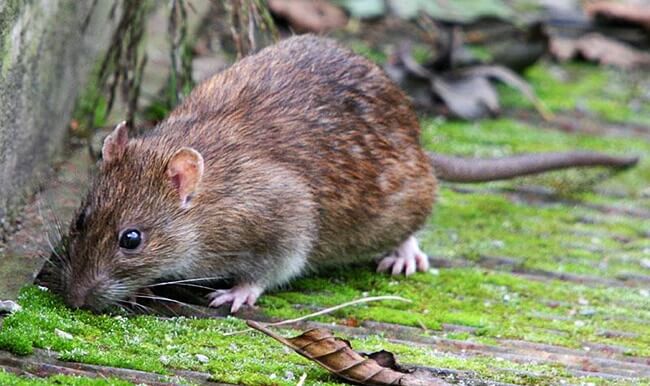
The gray big rat is the largest species widespread in Russia. The body of the gray big rat can reach the size of 40 centimeters, and the length of the tail is 20 cm. In nature, these rats live near water bodies. In winter, they prefer to be housed in human buildings. For arrangement in natural conditions, rodents dig holes up to a meter deep and 5 meters long. Gray big rats are omnivores, they also prefer food of animal origin.
7. Musky rat-kangaroo | 35 centimeters
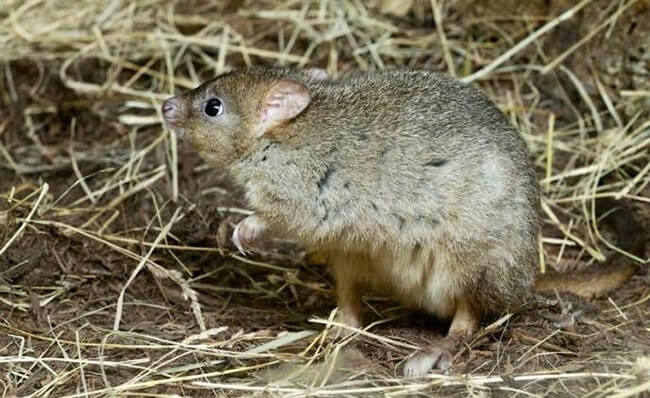
The Musky rat-kangaroo looks like an ordinary rat. All limbs of a Musky rat-kangaroo are proportional and have weak, small claws. The maximum body size of a Musky rat-kangaroo can reach 35 centimeters with a tail length of 12 cm. Musky rat-kangaroo prefers to live in dense thickets near water bodies.
The smell of musk characteristics of animals became the reason for the name of the species is a musky kangaroo. Females have a hatching pouch, where they bear their cubs for several months. The animal can move nimbly on the surface of the earth and climb trees. They choose insects and worms as food, but they can eat berries and root crops.
8. Brown rat | 30 centimeters
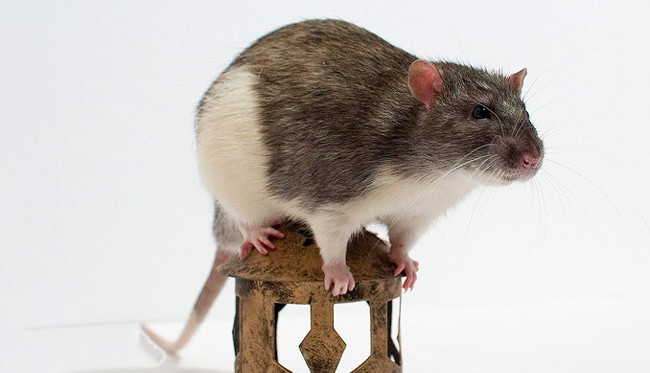
The Brown rat is the most common decorative rat in the world. The length of the body of an animal can reach 30 centimeters, the length of the tail is 20 cm. This breed is the ancestor of all existing species of decorative rats. The animal has an elongated, massive body, proportional to the length of the legs and short, smooth coat. These rats are clean and take good care of themselves. These animals are picky about food, they eat vegetables, grains, fruits, and even meat products.
9. Turkestan rat | 21 centimeters
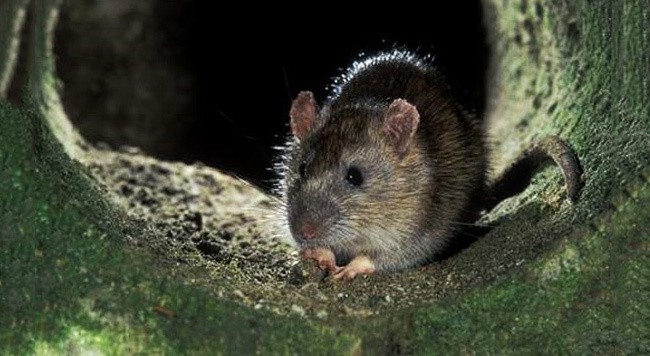
The Turkestan rat is of medium size. The body of a rodent can reach 25 centimeters, the tail is 21 cm, but most often it is equal to the length of the body. Outwardly, it is similar to the look of the Gray rat but much smaller. The animal chooses forest and mountain areas as its habitat. The animal loves to feast on the fruits of walnuts, apricot pits, and shells. In the winter season, most of the population moves to human housing. The species is widespread in the foothills of Central Asia.
10. Black Rat | 28 centimeters
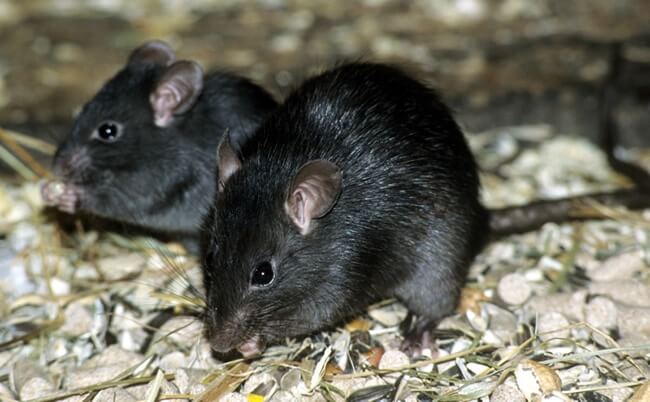
The black rat is one of the smallest rats in the world. With a body length of 22 centimeters, its tail can reach a length of 28 cm. It is a thermophilic species that chooses forests and bushes as a habitat for itself. In addition, rodents can often be found on ships.
This species does not dig holes but settles in the wild on trees, where it builds nests. It is a very common species that has spread throughout the globe, excluding the northern part. The rat feeds on seeds and fruits of trees.





